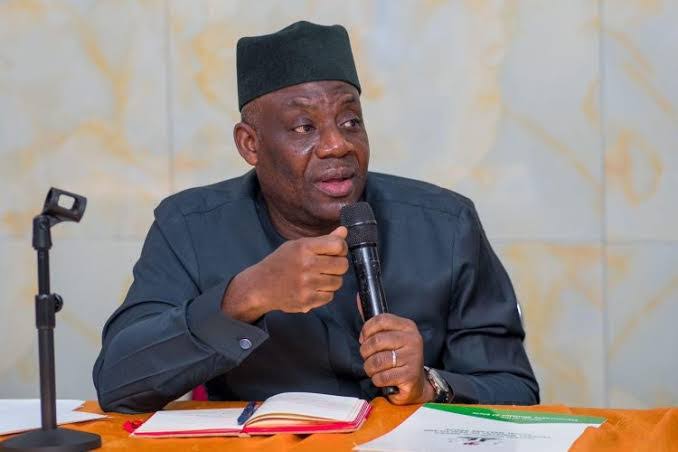By Chika Nwachukwu
Federal government has launched an Artificial Intelligence, AI, in Pedagogy training programme for 6,000 teachers, in a significant step towards revolutionising the education sector.
Speaking during a keynote address Tuesday, Minister of Education, Dr Maruf Alausa stated that the programme is aimed at equipping teachers with the skills necessary to prepare students for the rapidly evolving digital age.
The minister, who was represented by the Director of Basic and Secondary Education, Hajia Binta Abdulkadir, noted, “Under the ‘Renewed Hope Agenda’ of President Bola Tinubu, our administration has prioritised education as a catalyst for national development. The Federal Ministry of Education, in alignment with this vision, has undertaken several strategic initiatives to reform and modernise our educational sector. One of such is the integration of digital literacy and Al-driven pedagogical practices into our teaching methodologies, as well as the introduction of a centralised, harmonised databank and unified platform for the entire education sector in Nigeria.
“The world is undergoing a technological revolution and Al is at its core. Al is no longer a futuristic concept, but a present-day reality, transforming industries, economies and societies.
“As educators, we must embrace this evolution and ensure that our education sector is not left behind. The integration of Al into pedagogy offers an unprecedented opportunity to enhance learning experiences, personalise education, and develop critical thinking skills among our students. Our goal is to prepare them for careers in a technology-driven world, where Al literacy will be as fundamental as reading and writing.”
Also, the federal government at the event unveiled the Minimum Standards for Senior Secondary Education in Nigeria.
The minister noted that the document, which was developed by NSSEC through extensive collaboration with stakeholders and approved by the National Council on Education, would serve as a guiding framework to ensure that senior secondary education across Nigeria adheres to quality standards.
“It is our blueprint for ensuring consistency, accountability and measurable improvement in our education sector.
“Our commitment to reform the education sector includes initiatives such as curriculum modernisation, teacher training programmes and infrastructural development.
“We are also working towards expanding access to digital resources in schools and fostering partnerships with technology firms to bridge the gap between traditional teaching methods and contemporary innovations,” Alausa said.
He commended the National Senior Secondary Education Commission, NSSEC, for its dedication to enhance the education system in the country.
The training was organised by NSSEC in partnership with Google, Data Science Nigeria and Olabisi Onabanjo University aims to equip teachers with the necessary skills to facilitate innovative and technologically-driven education.
Also speaking, NSSEC boss, Dr Iyela Ajayi stated that the virtual training, which is sponsored by Google Research and supported by Data Science Nigeria and Olabisi Onabanjo University, Ogun State, was packaged in five modules and is expected to run for a period of five weeks.
Speaking on the minimum standards for secondary schools, Ajayi said it was a strategic response to the challenges and gaps identified in the senior secondary education sub-sector.
Ajayi stated that the minimum standards address critical areas that are fundamental to quality education, including Curriculum and Learning, Teacher Qualifications and Professional Development, Infrastructure and Learning Environment, Quality assurance through a robust Monitoring and Evaluation, School Governance and Leadership, Planning research and statistics and Implementation and Stakeholder Commitment.





